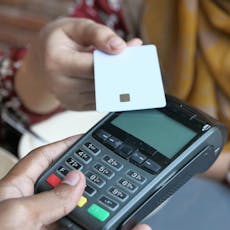Rewards credit cards can be used just like normal credit cards, but offer rewards such as cashback, points or air miles everytime you spend.
See which credit cards you're eligible for
Comparing won’t affect your credit score



By Matt Fernell, Editor at Finance.co.uk.

Get cashback, points, or air miles when you spend with a rewards credit card. Find out to find a rewards card that works for you.
We’ll help you find a rewards credit card that suits your needs and you’re eligible for.
Get a decision and see deals in minutes
Compare reward credit cards from a range of top providers
Only see credit cards you’re eligible for
Check eligibility with no impact on your credit score
You can compare credit cards you’re likely to get side-by-side so you can compare easily and choose a card that fits your needs.
To help us narrow down your search and find the cards you’re eligible for, we just need some information about:
Your income, including your employment status, start date and annual income
Your household details, including your address, homeowner status and what you pay towards rent or mortgage payments
Your personal information, including your name, date of birth, contact details, and number of dependents
This information allows us to do a ‘soft check’ on your credit record and assess your eligibility. We can then show you the cards you have the best chance of getting without impacting your credit score.
To choose the right reward credit card, you need to think carefully about how you will use the card and what sort of rewards are best for you. Things to think about to find the best rewards include:
There are three main types of reward cards you can choose from:
Airmiles cards: This type of card is designed for travel, and you get rewarded with ‘air miles’ or points you can exchange for flights, upgrades or discounts. You can also get other travel perks like access to airport lounges.
Supermarket cards: These cards are usually linked to a specific supermarket and allow you to earn their loyalty points (e.g. Tesco Clubcard or Sainsbury’s Nectar points) when spending away from their stores.
Cashback cards: This type of card can pay back a percentage of what you spend as cash. This effectively works as a small discount on every purchase, and you usually receive the cashback annually on your credit card account.
Think about what type of rewards are most beneficial to you. An Airmiles credit card would make sense if you travel a lot and would benefit from cheaper flights and upgrades.
However, if you don’t travel often and always shop at the same supermarket, a card that earns you loyalty points and discounts on your shopping could be a good option.
Reward credit cards usually charge an annual fee, especially those that offer the most rewards.
Try to look for the best credit card reward programs with the lowest fee, but make sure the rewards are worth the cost. If you don’t think you will use the card enough to earn rewards that effectively cover the fee, a rewards card might not be worth getting.
It is possible to get rewards cards that don’t charge an account fee, but they won’t offer the most rewards for your spending.
Some details about your reward card may be hidden in the small print. Some cards may have an introductory period where the amount of points you earn is more than average for a short period. Other cards may only let you access your rewards at the end of the year.
Make sure you also know what you need to do in order to earn points. For example, you may earn more points shopping at certain shops than others or when you spend over a certain amount in the first few months.
A rewards card can be worthwhile, but only if you use it in the right way.
If you use a rewards card for all your monthly spending and clear the balance at the end of each month, you can build up a lot of points. This can be a better option than just spending on your debit card, which won’t earn you any rewards.
However, if you don’t clear the balance each month, a rewards credit card could be expensive. Most rewards cards don’t offer 0% interest on purchases, which means you will be charged interest on any outstanding balance. Unless the rewards you earn are more than the interest you accrue, you will be out of pocket overall.
To get the most from a rewards card, you need to:
Use the card for your everyday spending
Choose a card that offers rewards useful to you
Clear your outstanding balance every month
Shop regularly at the supermarkets associated with the card
Make sure you will earn enough rewards to cover the fee
Follow the rules of the card to qualify for rewards
Earn rewards every time you spend
Rewards can be redeemed online
They can be lucrative if used correctly
You get Section 75 protection on your purchases
You need a good credit rating to be eligible
The cost of fees could outweigh the benefits of the rewards
Interest rates can be high
You may be tempted to spend more to get the most rewards
The information provided does not constitute financial advice, it’s always important to do your own research to ensure a financial product is right for your circumstances. If you’re unsure you should contact an independent financial advisor.
We're on a mission to improve the finances of the nation by helping you to spend wisely and save money



We're on a mission to improve the finances of the nation by helping you to spend wisely and save money



For some cards, the points you earn may expire after a few years. If you don't use your points, you could lose them.
On other cards, your points won't expire unless you close your account. Some card providers may close your account automatically if it's not been used in a long time, removing your rewards.
Check the terms and conditions of each rewards card to find out how long points last.
Getting a rewards credit card will be tough if your credit rating is poor. These cards are intended for those with fair to good credit ratings, so applying with anything less than this may mean you're rejected.
You can have as many reward cards as you want. But it's important to remember you'll be paying more for multiple cards because most come with an annual or monthly fee.
If you have more than one reward card, you need to be confident you'll spend enough to earn rewards that outweigh the fees.
Having multiple cards can be difficult to manage, and numerous applications for credit cards will leave marks on your credit report, which may put future lenders off.
A rewards card is a credit card offering rewards for when you use the card for spending. These rewards can either be points redeemable at certain retailers and businesses or air miles which can be used for flights.
Cashback cards give you back a percentage of your spending. The money from a cashback card is put back into your account and can be used to reduce your credit card balance.